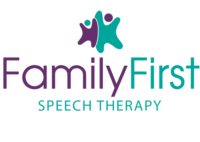
How does your child do when it comes to planning get togethers? Do they know where to begin?
Did you know 56% of people with ADHD have NO reciprocated friendships, which is almost double children without ADHD!
Teaching our kids how to make friends, keep friends, and handle conflicts with other kids is very important so that they do not become depressed and self-isolate.
Our kids have difficulty entering conversations, asking questions to keep the conversation going, staying on topic, interrupting, losing track of the conversation, and even have difficulty leaving appropriately.
There are so many things to think about!
How do I teach my child to have get togethers with their friends?
I recently held a workshop that was buzzing with people asking how I learned how to throw parties. It has taken me a long time to understand and learn how to have a get together others want to come back to again (I get it, I have ADHD myself!). It takes work!
It does not need to be elaborate in any way. HOWEVER, we can’t think it’s just going to naturally happen. That is not the case for many of us living with a child who is neurodiverse.
Planning a get together is not the first step in helping your children’s friendships thrive, but it certainly is important.
SO…
If your child is ready to begin having get togethers, here are some tips
- Start small! 1 friend is a great start!
- Invite friends with common interests — not everyone you know needs to be at every gathering. The more intimate the better!
- Practice role-playing with your child how to introduce everyone to each other.
- Role-play how to ask follow up questions to what the other person is talking about.
- Teach your child how to read the cues of interest. Is the person looking at you? Are they asking questions? Are they looking around? Are they giving short yes/no responses?
- Teach them how to change locations. Something like, “Are you ready to do something else?”
- Teach them to read the cues that it’s time to end the get together.
- Role-play saying farewells.
If your child does not like role-playing, turn it into a game. Pretend they are you and you are them. Then pretend they are you at your age, and you’re another friend.
Make it fun!
Research suggests that friendships can help us find purpose and meaning, stay healthy, and live longer. Isn’t that what we want for our kids? Does your child need help making and keeping friends? Don’t wait — it really is life or death!
If you would like help supporting your child as they build their relationships, check out our monthly workshops where we focus on language/social skills, speech clarity, and articulation/oral motor skills.
Photo by Robert Collins on Unsplash
